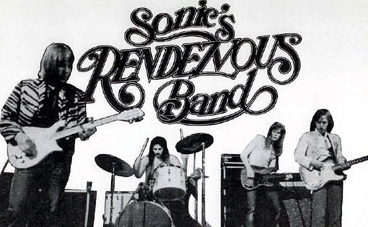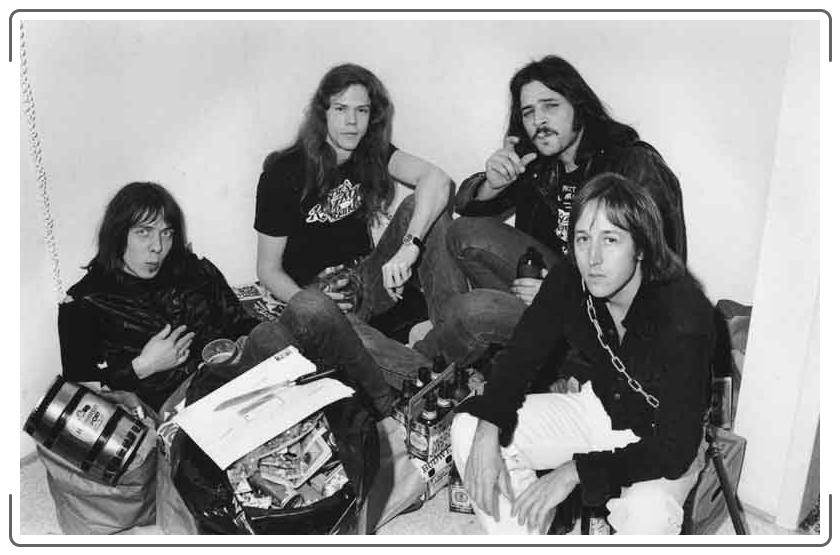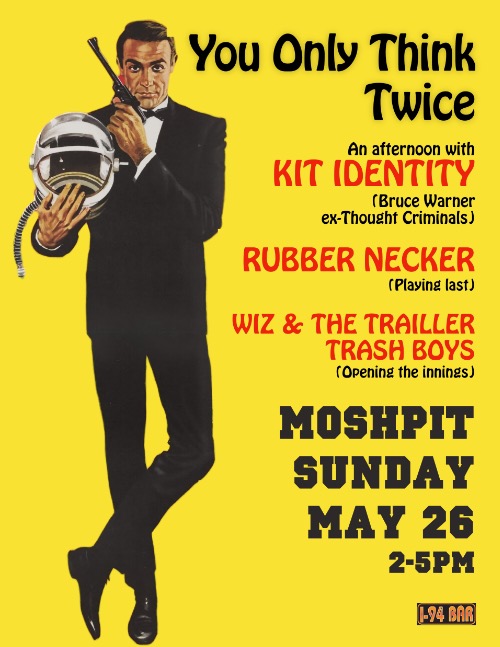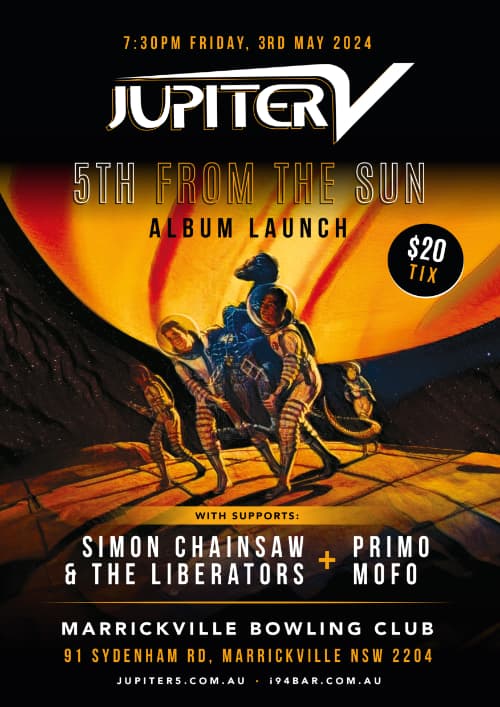 Consider the Sonic's Rendezvous Band saga...
Arisen, phoenix-like, from the ashes of four of the Motor City's finest proponents of high-energy rock -- the MC5, the Stooges, the Rationals, and the Up - the Rendezvous steadfastly refused to bank on their illustrious pasts (which, granted, might have been more of a liability than an asset at that point in history). Rather, they insisted on a more original kind of expression -- hardly a guarantee of steady employment for a local band in the mid-to-late '70s.
Consider the Sonic's Rendezvous Band saga...
Arisen, phoenix-like, from the ashes of four of the Motor City's finest proponents of high-energy rock -- the MC5, the Stooges, the Rationals, and the Up - the Rendezvous steadfastly refused to bank on their illustrious pasts (which, granted, might have been more of a liability than an asset at that point in history). Rather, they insisted on a more original kind of expression -- hardly a guarantee of steady employment for a local band in the mid-to-late '70s.
Bloodied but unbowed by the implosion of his former band, "revolutionary" radicals and rabble-rousers the MC5, Fred "Sonic" Smith was fast evolving past his roots in Berry/Stones drive into a guitarist/songwriter/singer of unmatched emotional directness and power. Joining him in the Rendezvous frontline was the former Rationals' blue-eyed soul-brother supreme Scott Morgan, arguably the finest American rock singer and himself no slouch as a songwriter and guitarist. The Rendezvous was more than just a band that rocked hard, although they did THAT with a vengeance.

Sonic's Rendezvous Band in 1977. Fred Sonic Smith, Gary Rasmussen, Scott Asheton and Scott Morgan. Robert Matheu photo
The confluence of Fred's spirituality and Scott's soulfulness made them much, much more.. Add the rhythm team of former Up/Uprising bassman Gary Rasmussen and powerhouse skinsman Scott "Rock Action" Asheton (who'd stoked the engine room for the Stooges in all their incarnations, from "Psychedelic" to "Iggy & the..."), and you had a formidable combination of talents. They never performed more than a few hours away from their home base in Ann Arbor. Throughout their existence, they only released a single song on vinyl...the searing "City Slang."
Yet, for 30 years since their demise, their legend has steadily grown and spread through word of mouth from the few who were there, as well as a handful of audience tapes which continue to pass from hand to hand, fan to fan. Today, as a result, bands from Stockholm to Seattle to Sydney cite them as an influence. Recent releases of studio and live Rendezvous material make it easy for anyone to hear what the band could deliver in performance. But Gary Rasmussen has indicated that in rehearsals, the band would warm up with jams a lot more free-form than anything they ever played publicly (although audience recordings of "American Boy" provide a tantalizing taste of what those jams MIGHT have sounded like). In more ways than one, this band was THE ONE THAT GOT AWAY.
It seems criminal that they never found a wider audience in their day -- and begs the question WHY NOT? Part of it has to do with the fact that they weren't charismatic PERFORMERS in the way the Five or Stooges were. Scott Morgan freely admits today that "we just stood there looking at our shoes." But why was their recorded legacy so scant? Why would a band with 30 or 40 good original songs only record TWO of them in the studio? Granted, the Rendezvous drama played out years before "DIY" was the generally-accepted way to go for up-and-coming rock'n'roll bands...these guys came from an era where a label signed you up and handled the marketing and distribution of your product. But why was there no effort to at least demo the material for label consideration?
Undoubtedly, this was a band with some built-in complications, the most obvious being the creative tension between Fred Smith and Scott Morgan. The band's zenith probably came at the point when the songwriters' input was about equal, around 1978. But was the dynamic between the two a limiting factor for the band? One wonders, for instance, why a vocalist as limited as Fred would have sung songs he didn't write, while a singer of Scott's caliber stood mute in the background, strumming rhythm chords -- an arrangement as self-defeating as having Scott playing all the lead guitar would have been. (For his part, Morgan speaks as highly of Fred's vocal ability as he does of his partner's instrumental and compositional skills.) Or why the band (minus Morgan) left Detroit to tour as Iggy Pop's backing band on the eve of the "City Slang" single's release.
Which highlights another problematic area: the business direction of the band. Enthusiasm Scott Morgan has in spades, but a businessman he clearly is not. Likewise, personal charisma and influence Fred Smith might have possessed, but he was never a BANDLEADER in the sense of stating a direction and insuring that things got done.
Today, we can only wonder what his intentions were, and why did he finally pull the plug and withdraw from public performance (following his 1980 marriage to punk poetess Patti Smith)? Sonic can no longer speak for himself, having left the planet in 1994 (following his MC5 brother Rob Tyner, who departed in 1991).




